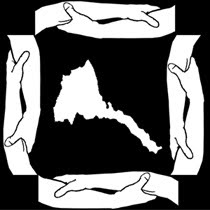Intervention by His Excellency
Silvano M. Tomasi Permant Observer of the Holy See to the United Nations and
Specialized Agencies in Geneva
at the 18th Session of the Human Rights
Council
“Thematic study on the
realization of the right to health of older persons"
16 September 2011
Madam
President,
The
delegation of the Holy See wishes to express sincere interest and concern on
this important topic for discussion. The expanding representation of older
persons in the general population is well noted in the report, with estimates
of persons 60 years of age and older being placed at 760 million at the end of
2010 and projections at one billion by the end of the current decade. This
phenomenon is indeed cross-cutting and cross-cultural, with increasing numbers
of older people to be found in the developing world. The report writer mentions
the various social, economic, medical, and psychological challenges to be
confronted in the face of such demographic changes. Moreover, he makes the
compelling point “that
the promotion and protection of human rights of older persons is not only in
the interest of senior persons, but should also be of concern to everyone,
because every person ages.”
The Special Rapporteur encourages a
“paradigm shift” in the current bio-medical view of ageing which too often is
seen “as an abnormal or pathological phenomenon” and thus “equates advanced age
with illness.” With similar reasoning, the World Health Organization promotes
“active ageing” that aims to optimize opportunities for health, participation
and security amongst older persons in order to enhance their quality of life,”
through “continuing participation in social, economic, cultural and civic
affairs”, rather than basing the criteria for such activity merely on physical
stamina or participation in the labour force.
With regard to elderly persons who
require special care, the Catholic Church, through its sponsorship of 15,448
homes for the aged, chronically ill and handicapped persons in all parts of the
world, sees the growing number of ageing persons as a “blessing” rather than as
a burden on society. It further believes that “every generation can learn from the experience
and wisdom of the generation that preceded it. Indeed the provision of care for
the elderly should be considered not so much an act of generosity as the
repayment of a debt of gratitude.”[1] Thus my delegation would
agree with the recommendation made by the Special Rapporteur that “States should allocate more resources
for the provision of geriatric healthcare in order to ensure that all
healthcare workers, irrespective of specialty or profession, are adequately
trained to deal with the particular health issues associated with ageing. They
should also be trained on the right to health so that they interact with elderly
patients in an appropriate, considerate and non-discriminatory manner.”
We further agree with the premise made
in the Report that, in order to fully enjoy the right to health, older persons
should be accorded the freedom “to make independent decisions about one’s
health, which is to say freedom from State interference”. In addition, older
persons are equally entitled to “the provision of primary health care and
social protection which recognizes and takes into account age-related
elements”, to home-based care and long-term care when and if such services
become necessary, and access to “the underlying determinants of health,
such as access to water and sanitation, food and nutrition, education and
housing.” We note, moreover, that the Report recognizes the deleterious impact
on both the autonomy and dignity of frail elderly persons as well as the
special need for protecting such persons against physical and emotional abuse
by caregivers or even by family members.
Madam President, a significant number
of palliative and hospice care programs are sponsored by the Catholic Church in
order to assist elderly and other seriously ill persons to enter in the final
stages of life with dignity and with minimal discomfort and pain. My delegation
wishes to take strong exception to a reference in the report regarding “issues
of patient autonomy in respect of deciding to end life,” even though the report
writer notes that he is not treating such issues in the context of the present
report.” We strongly believe that life is a gift that no person has the
so-called “right” to end, that death is the culmination of a natural process
and no person, even the elderly or suffering person himself or herself, is entitled to cause or hasten the natural
process of dying through biomedical or
any other means.
Thus, in conclusion, the Holy See “exhorts scientists and doctors to undertake research to prevent and
treat illnesses linked to old age without ever ceding to the temptation to have
recourse to practices that shorten the life of the aged and sick, practices
that would turn out to be, in fact, forms of euthanasia.”[2]
[1] Pope Benedict XVI, Address during
visit to St. Peter’s Residence, Home for Older Persons, London Borough of
Lambeth, 18 September 2010, http://www.vatican.va/holy_father/benedict_xvi/speeches/2010/september/documents/hf_ben-xvi_spe_20100918_st-peter-residence_en.html
[2] Pope Benedict XVI, Address to the
Participants in the 22nd International Congress of the Pontifical
Council for Health Pastoral Care, Vatican City, 17 November 2007, http://www.vatican.va/holy_father/benedict_xvi/speeches/2007/november/documents/hf_ben-xvi_spe_20071117_xxii-operatori-sanitari_en.html

Nessun commento:
Posta un commento